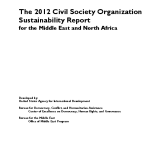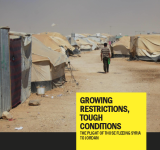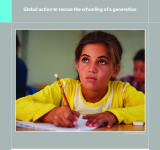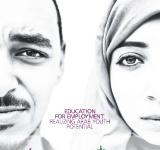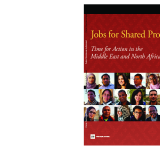Lebanon
يستند مضمون هذا التقرير المتعلق بالأردن إلى حد كبير إلى زيارة بحثية قامت بها منظمة العفو الدولية إلى البلاد في يونيو/حزيران 2013. وقد التقى وفد المنظمة بممثلي السلطات الأردنية ووكالات الأمم المتحدة والوكالات الإنسانية الدولية والمنظمات غير الحكومية والجمعيات الخيرية;; فضلاً عن أكثر من 150 لاجئاً من سوريا في مجتمعات اللجوء والمجتمعات المضيفة. ونشرت منظمة العفو الدولية هذا التقرير بهدف لفت الانتباه إلى الصعوبات التي يواجهها الفارون من سوريا طلباً للسلامة. وفي الوقت الذي يركز فيه التقرير بشكل رئييس على الأوضاع في الأردن;; فإنه يتضمن تحديثا للمعلومات التي كانت المنظمة قد نشرتها في السابق بشأن التحديات التي يواجهها اللالجئون من سوريا في البلدان المجاورة. وقد أمعنت منظمة العفو الدولية النظر في التحديات التي يواجهها اللاجئون في الأردن;; ولا سيما أولئك الذين يقطنون في مخيم الزعتري;; وهو أضخم مخيمات اللاجئين من سوريا في الأردن. وأجرت المنظمة تحقيقاً حول معاناة اللاجئين;; ليس من ظروف المعيشة القاسية في الصحراء فحسب;; وإنما أيضاً من ارتفاع معدلات الجريمة وغيرها من المخاوف الأمنية.
أُجري هذا التقرير على مدار أربعة أشهر في لبنان والأردن;; ويركز على التحديات المؤلمة التي تواجه أطفال اللاجئين السوريين كل يوم. والهدف من هذا التقرير هو إعداد تقرير قائم على الأدلة من زاوية إنسانية;; تستهدف قاعدة عريضة من الجماهير لرفع الوعي بشأن التحديات التي تواجه حماية الأطفال;; وإعطاء فكرة عن كيفية استجابة وكالة الأمم المتحدة وشركائها;; وتسليط الضوء على بعض الفجوات التي تتطلب اهتماماً عاجلاً من جانب المجتمع الدولي. وتم اعتماد منهجية تتألف من مراجعة مكتبية للتقارير والتقييمات القائمة;; إلى جانب جمع البيانات وإجراء بحث ميداني في كل من المواقع الحضرية والريفية وفي المخيمات. وقد تم جمع المعلومات من خلال مناقشات مجموعة التركيز والمقابلات التي أجريت مع الأطفال اللاجئين وعائلاتهم;; إلى جانب اللاجئين العاملين مع الأطفال داخل مجتمعاتهم وموظفي المفوضية وغيرها من المنظمات العاملة مع الأطفال اللاجئين.
The report assesses the practical challenges of education and schooling for the Syrian children in refugee camps in Jordan;; Lebanon and Egypt as the Syrian Crisis prolongs. It argues that ensuring the continued access to learning is an essential platform for protection;; social stabilization and economic recovery that the international community should not ignore. The report also includes important figures and statistics revealing the alarming situation of education and school. Some of the key statistics are the host-country school-age children compared to Syrian school-age children;; Syrian children enrolled in public schools in Lebanon and Jordan and school-age Syrian refugee children in and out of school by countries such as Iraq;; Egypt;; Turkey;; Jordan and Lebanon. The report concludes with four key recommendations to be undertaken by regional governments and their international partners so that the fundamental right to quality education can be guaranteed to the Syrian children.
The UNICEF Syria Crisis is a series of bi-weekly report that provides a summary of the humanitarian situation in Syria and development of the organization’s projects in the regions including Syria;; Lebanon;; Jordan;; Iraq;; Turkey and Egypt. The report contains an overview to the changing situations and humanitarian needs of the crisis. It focuses on the results and progress of the UNICEF projects in partnership with other local agencies in each country. These projects aim to ensure sustained access to safe water and sanitation;; provide psychosocial support;; vaccination and school supplies for children and support camps and host community schools for increased school enrollment. Relevant figures that summarize and evaluate the development of ongoing programmes can also be found in the report.
The Arab World faces extraordinary challenges. In a region with the world's highest youth unemployment rate;; millions are frustrated by their job prospects – a frustration born of education that often leaves them unprepared for the marketplace. This report shows that the private sector can be a powerful force for positive change by complementing public efforts to ensure that the region's youth gain the right skills for the jobs being created.
Jobs are crucial for individual well-being. They provide a livelihood and;; equally important;; a sense of dignity. They are also crucial for collective well-being and economic growth. However;; the rules and the incentives that govern labor markets in MENA countries have led to inefficient and inequitable outcomes on the personal and collective standpoint. Several underlying distortions prevent a more productive use of human capital and have led to a widespread sense of unfairness and exclusion;; of which the Arab Spring was a powerful expression.
